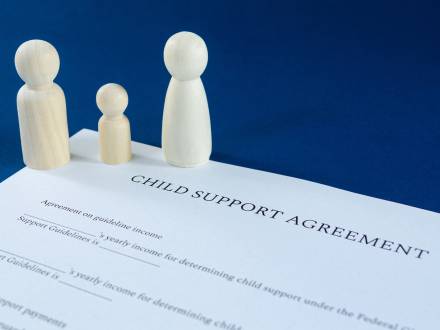Recent Blog Posts
How Do I Stop Paying Alimony in Illinois?
 Many people who pay alimony, known as spousal maintenance in Illinois, reach a point where continued support no longer feels fair or workable. The good news is that Illinois law allows it to end in certain situations, but only when specific legal rules are met. If you are dealing with this issue, a Joliet, IL alimony lawyer can help you understand your options early and avoid costly mistakes. As of 2025, Illinois courts still require a clear legal basis or court order before spousal maintenance can end.
Many people who pay alimony, known as spousal maintenance in Illinois, reach a point where continued support no longer feels fair or workable. The good news is that Illinois law allows it to end in certain situations, but only when specific legal rules are met. If you are dealing with this issue, a Joliet, IL alimony lawyer can help you understand your options early and avoid costly mistakes. As of 2025, Illinois courts still require a clear legal basis or court order before spousal maintenance can end.
When Does Alimony Automatically End in Illinois?
Illinois law explains when spousal maintenance ends without the need for a new court hearing. These rules are part of the Illinois Marriage and Dissolution of Marriage Act. Under 750 ILCS 5/510(c), maintenance automatically ends if the receiving spouse remarries or if either spouse dies.
What Is the Easiest Way To Get Divorced in Illinois?
 There is more than one way to get a divorce, and the method that works best for you depends on the details of your situation. An uncontested divorce is often the fastest and smoothest process, but that is not a possibility for everyone. Our Orland Park, IL divorce lawyers will assess your circumstances and help you understand which type of divorce best suits your case.
There is more than one way to get a divorce, and the method that works best for you depends on the details of your situation. An uncontested divorce is often the fastest and smoothest process, but that is not a possibility for everyone. Our Orland Park, IL divorce lawyers will assess your circumstances and help you understand which type of divorce best suits your case.
How Does Divorce Work in Illinois?
Illinois is a no-fault divorce state. This means that a spouse does not need to prove that the other person did something wrong in order to get a divorce. Under 750 ILCS 5/401, a divorce may be granted when irreconcilable differences have caused the breakdown of the marriage and the spouses have lived separate and apart for at least six months.
How Can I Stop My Ex From Turning My Children Against Me?
 There are few things more devastating than feeling like your relationship with your children is strained. When the person responsible for the strain is your co-parent who shares custody, the situation is especially frustrating. This behavior, often called parental alienation, is damaging to your children as well. With help from knowledgeable Joliet, IL child custody lawyers, you can protect your parental rights and take steps to rebuild trust with your children.
There are few things more devastating than feeling like your relationship with your children is strained. When the person responsible for the strain is your co-parent who shares custody, the situation is especially frustrating. This behavior, often called parental alienation, is damaging to your children as well. With help from knowledgeable Joliet, IL child custody lawyers, you can protect your parental rights and take steps to rebuild trust with your children.
Does Illinois Law Recognize Parental Alienation?
Parental alienation happens when one parent tries to manipulate a child into rejecting or distrusting the other parent. They might block communication or sow seeds with false claims. Even though the term "parental alienation" does not appear directly in Illinois law, the behavior behind it is recognized by the courts.
What Property Is Considered Marital Property in Illinois?
 Dividing property during a divorce is often challenging. It can be hard to know what belongs to both spouses and what belongs to only one person. Illinois uses specific rules based on equitable distribution to decide how property should be classified and divided. You need to know the rules to ensure you end up with a fair settlement. Our team of Orland Park, IL property division lawyers can provide guidance tailored to your specific situation.
Dividing property during a divorce is often challenging. It can be hard to know what belongs to both spouses and what belongs to only one person. Illinois uses specific rules based on equitable distribution to decide how property should be classified and divided. You need to know the rules to ensure you end up with a fair settlement. Our team of Orland Park, IL property division lawyers can provide guidance tailored to your specific situation.
How Does Illinois Law Define Marital Property?
Under the Illinois Marriage and Dissolution of Marriage Act, the courts have guidelines to decide what is considered marital property. Under 750 ILCS 5/503, marital property includes most assets that either spouse acquires after the wedding and before the divorce is completed. This is true even if only one spouse is listed on a title, deed, or bank account. The key question is when the property was obtained, not whose name is on it.
Does My Ex Keep Paying Child Support if They Have Another Child?
 In Illinois, a new baby or stepchild can affect a parent’s finances, but it does not automatically cancel or reduce child support obligations. Courts look closely at both parents’ incomes, family size, and the needs of each child before deciding if payments should change. If you are unsure what this means for you, the Joliet, IL child support lawyers at The Foray Hurst Firm can help you understand your rights.
In Illinois, a new baby or stepchild can affect a parent’s finances, but it does not automatically cancel or reduce child support obligations. Courts look closely at both parents’ incomes, family size, and the needs of each child before deciding if payments should change. If you are unsure what this means for you, the Joliet, IL child support lawyers at The Foray Hurst Firm can help you understand your rights.
How Do Illinois Courts Calculate Child Support?
Under Illinois’s income-shares model (750 ILCS 5/505), the court uses both your incomes to figure out how much support should be paid. The point is to estimate what your child would have received if you were all living together. The court divides the total of your income by how much you each make to figure out your financial responsibility. For example, if your ex earns 70 percent of the total income, they are typically responsible for 70 percent of your child’s financial support.
Creating an Illinois Parenting Plan When You Have Been the Primary Caregiver
 Creating a parenting plan is one of the first steps in a child custody case. Illinois law requires parents to submit this plan to explain how they will divide time and make decisions for their child. For parents who have been the primary caregivers, there are many elements to consider. With help from experienced Orland Park, IL child custody lawyers, you can build a plan that protects your bond with your children and supports their stability.
Creating a parenting plan is one of the first steps in a child custody case. Illinois law requires parents to submit this plan to explain how they will divide time and make decisions for their child. For parents who have been the primary caregivers, there are many elements to consider. With help from experienced Orland Park, IL child custody lawyers, you can build a plan that protects your bond with your children and supports their stability.
Illinois Parenting Plan Requirements
According to 750 ILCS 5/602.10, both parents must file a parenting plan within 120 days after starting a case for the allocation of parental responsibilities, commonly known as child custody. This plan is a written agreement that explains how you and your co-parent will share time and make important decisions for your child. If you agree on everything, you can submit a plan together. If not, you each file a separate plan. The judge will review both versions to decide what is best for the child.
How Can Online Activity Impact Divorce in Illinois?
 In today’s digital world, what you post online could easily show up during divorce proceedings. Social media, text messages, and even dating apps leave behind evidence that may be used in court. In Illinois, judges may allow online activity to be introduced as evidence that affects property, custody, and support. Our Joliet, IL divorce lawyers will guide you through the steps needed to protect both your case and your privacy.
In today’s digital world, what you post online could easily show up during divorce proceedings. Social media, text messages, and even dating apps leave behind evidence that may be used in court. In Illinois, judges may allow online activity to be introduced as evidence that affects property, custody, and support. Our Joliet, IL divorce lawyers will guide you through the steps needed to protect both your case and your privacy.
Can Online Posts Be Used as Evidence in Illinois Courts?
In Illinois, social media posts, emails, and text messages can be treated like any other type of evidence. Under the Illinois Rules of Evidence, Rule 401, evidence must be relevant, meaning it has to make a fact in the case more or less likely to be true. For example, if you say you cannot afford child support but post photos of luxury vacations, those posts can be used to question your finances.
When Can You Ask the Court To Change a Custody Agreement in Illinois?
 Parents who share custody of their children sometimes find that life changes impact their parenting. When this happens, the parenting plan that once fit the family’s needs may no longer serve the best interests of the child. If you need to modify your existing plan, an experienced Orland Park, IL child custody lawyer can guide you through the process and help you understand what the court requires to make a change.
Parents who share custody of their children sometimes find that life changes impact their parenting. When this happens, the parenting plan that once fit the family’s needs may no longer serve the best interests of the child. If you need to modify your existing plan, an experienced Orland Park, IL child custody lawyer can guide you through the process and help you understand what the court requires to make a change.
Understanding Custody Agreements Under Illinois Law
In Illinois, the law uses the term "allocation of parental responsibilities" rather than "custody." This includes both decision-making authority and parenting time. Once a parenting plan has been entered by the court, it is legally binding.
Under 750 ILCS 5/610.5(a) of the Illinois Marriage and Dissolution of Marriage Act, courts generally require parents to wait two years before filing a request to change decision-making authority. Parenting time, however, can sometimes be adjusted sooner if there is a good reason.
Can I Fight a Prenup if I Signed Away Alimony?
 Many people sign prenuptial agreements with confidence, believing they are simply planning ahead. But divorce rarely unfolds exactly as anyone expects. If you signed a prenup that waived your right to alimony, you may now find yourself in a very different situation.
Many people sign prenuptial agreements with confidence, believing they are simply planning ahead. But divorce rarely unfolds exactly as anyone expects. If you signed a prenup that waived your right to alimony, you may now find yourself in a very different situation.
For example, people often have to give up productive careers to spend years as the primary caregiver to a sick or disabled child, or to support a spouse’s business. Suddenly, the financial independence you once assumed you would have is gone, and the prenup feels unfair.
As of August 2025, Illinois law still allows spouses to challenge prenuptial agreements under certain circumstances. Courts recognize that agreements made before marriage cannot always predict the realities of family life. Meet with our Orland Park, IL divorce attorney to learn more about what challenging a prenup might look like for you.
5 Things to Think About if You're Getting Divorced with a Special Needs Child
 Divorce changes every part of family life, but for parents of a child with special needs, the transition carries an added layer of considerations. Standard parenting plans and support orders are rarely enough; you need a plan that considers the day-to-day realities of caregiving and the long-term care your child will need well into adulthood.
Divorce changes every part of family life, but for parents of a child with special needs, the transition carries an added layer of considerations. Standard parenting plans and support orders are rarely enough; you need a plan that considers the day-to-day realities of caregiving and the long-term care your child will need well into adulthood.
At The Foray Hurst Firm, our Joliet, IL divorce attorneys work closely with parents navigating divorce and disability. Our mission has always been to help all families preserve dignity, stability, and peace through even the most difficult transitions. Below are five essential considerations to keep in mind if you are divorcing with a special needs child in Illinois.
Standard Parenting Time May Not Fit Your Child’s Needs
In Illinois, parenting time and decision-making responsibilities are determined based on the best interests of the child. For children with special needs, this often means rethinking what "best interest" really looks like in practice.








